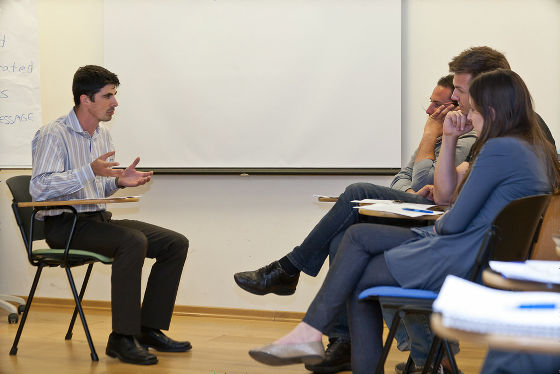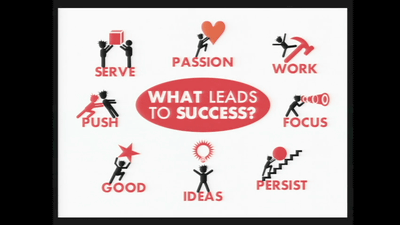Questions to identify talented people who can help you in your job

By
There are various questions asked in the interview depending on the company and work, and it seems that Google sometimes asks 'How many golf balls can fit in the school bus?', But customers and business partners 'The Most Revealing Job Interview Question ' is published by Kevin Morrill as a question to find talented people who can interact well and organize a team.
The Most Revealing Interview Question --Referly Blog
http://refer.ly/blog/most-revealing-interview-question/
◆ Question settings

By
First, set the question by saying:
'I want you to explain something. Any topic. Your hobbies, books you read, projects you worked on ... whatever. Please explain in 5 minutes. At the beginning of 5 minutes I will Assuming you don't know anything, in the end I have to understand what is the most important point on the topic. In 5 minutes I will ask you some questions and you will ask me too You can think about it as much as you like, so please let me know when you want to get started. '
When explaining a question, the point I emphasize many times is to 'make me understand the most important points.'
◆ Empathy

By
When they start explaining, try to have a 'poor look' as much as possible. It does not give the basis of conversation such as 'Fum Fum' or 'I see.' A good candidate picks up such a reaction and asks, 'Did you understand what you've been up to?' At work, these talented candidates will likewise empathize with their customers and behave in the same way. Candidates with less empathy, on the other hand, equate presentation with communication and lose sight of the audience. It's hard to understand how such developers solve problems, and it's unlikely that they will have constructive discussions.
Descriptions using similar ones are used by some of the best candidates. As an example, when learning the basics of poker, Kevin heard that even if he had never played poker, the basics would use the experience of backgammon. The leader said that in backgammon, the pieces on the board would be visible to both players, but in poker they would be hidden. This type of explanation is a shortcut to successfully communicating your ideas to others.
◆ Goal direction and organization

By
Surprisingly, there are so many candidates who don't ponder before answering during an interview. The militant type of candidate begins the explanation without having the bullet points or outlines in his head that he wants to understand. This makes it possible to predict that candidates will actually act in a direction that is not organized and has no goals at work. On the contrary, those who think about things and have some clear points were the best business partners with whom they worked. Not only is it easy to communicate, they get results at work.
◆ The leader has a gut that says 'no'

By ~ Free BirD® ~
As a senior position, interviewers ask questions that have little to do with their goals at the beginning of the five minutes. Competent candidates, on the other hand, politely decline, prevent obscure stories, and emphasize topics to talk about. This is seemingly unfair because they are in the middle of an interview and have to answer what they are asked. However, in reality, the same thing often happens at work, so saying 'no' is the key to focusing confident people on the team in the conversation.
◆ Stacking

By susivinh
The fact that more than 200 interviews have given us that one or two out of ten candidates usually do well at all of these points.
This question is an amazing tool to separate the most talented people from others, and it's also risky to share this. However, while this question is very helpful, reading it does not mean that it is easy to ask.
Related Posts:
in Note, Posted by darkhorse_log







